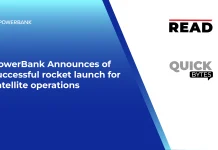Schneider Electric, a global leader in energy management and automation, announced the Accelerating Resilient Infrastructure Initiative-a nationwide effort to rapidly deploy resilient, community-based energy systems across the U.S. The initiative brings together more than 20 partners to support public and private sector organizations with innovative solutions and financing.
The Accelerating Resilient Infrastructure Initiative is designed to help rapidly scope, finance and deploy resilient energy infrastructure, such as microgrids, while federal incentives remain available. The initiative comes at a pivotal moment for U.S. energy infrastructure. With federal incentives currently available for clean energy projects, communities have a unique opportunity to accelerate deployment of resilient energy infrastructure. Acting now allows organizations to take advantage of existing funding mechanisms before key deadlines shift-making timely planning essential.
“Communities are under increasing pressure to maintain reliable, affordable power in the face of aging infrastructure, extreme weather, rising demand and evolving cyber threats,” said Jana Gerber, North American President of Microgrids for Schneider Electric. “With power outages costing the U.S. economy an estimated $150 billion each year, the need for resilient energy infrastructure has never been more urgent. This initiative brings together industry leaders to accelerate the deployment of local, future-ready energy solutions, helping communities reduce risk, control costs and ensure continuity of critical services.”
Also Read: Avathon Launches Autonomous AI Platform to Transform Renewable Energy Operations
“The initiative is a powerful example of how industry collaboration and digital innovation can accelerate the deployment of resilient energy infrastructure at scale,” said Darryl Willis, Corporate Vice President, Energy & Resources Industry at Microsoft. “By combining Schneider Electric’s expertise with Microsoft’s trusted cloud and AI technologies, we are helping communities strengthen critical infrastructure, unlock new business value and advance a more sustainable, secure and resilient energy future.”
By 2028, the U.S. power grid is expected to reach a critical inflection point, where peak electricity supply may no longer meet peak demand, threatening grid reliability. The initiative aims to ease grid stress and curb rising energy costs by scaling distributed energy resources (DERs). These include solar panels, battery energy storage, geothermal heat pumps, and electric vehicle charging infrastructure. By deploying these technologies, the initiative helps communities reduce reliance on the centralized grid, mitigate the impact of rising utility rates, strengthen energy resilience and support long-term sustainability goals.
Financing and Delivery at Scale
Project developers AlphaStruxure, AZZO, EVerged, Unison Energy, Verdant Microgrid and Sunrock have identified $7.5 billion in capital to finance energy resilience projects for sites such as municipal facilities, airports, campuses, hospitals, schools, seaports and water-treatment plants.
Projects can be delivered as turnkey solutions through long-term service agreements such as Energy as a Service (EaaS) contracts. These convert upfront capital costs into predictable, recurring payments, making advanced energy systems more accessible. For organizations seeking to fund upgrades through operational savings, Energy Savings Performance Contracts (ESPCs) offer a proven model, allowing improvements to be paid for over time using guaranteed energy savings. This approach eliminates the need for upfront investment and enables communities to reinvest savings into essential services and local priorities.
SOURCE: PRNewswire




